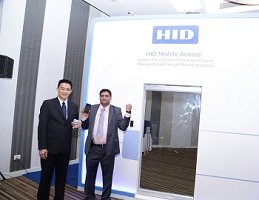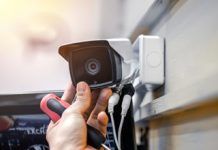HID Global recently completed an APAC survey of security professionals to gain an understanding of the opportunities and challenges faced by the mobile access market. The survey revealed that 57% of security professionals predict mobile access control would ultimately replace traditional card based systems in the future. This indicates a strong upward trend for deploying advanced mobile access control solutions. However, majority of the respondents expect the changeover to be steady and gradual.
38% of the organizations have already deployed or plan to deploy mobile access in the next three to six months. 43% of the respondents stated that mobile access will serve as a complimentary solution to traditional access cards instead of fully replacing them. 50% of the organizations were looking beyond physical access control and were keen to deploy biometric applications of mobile access solutions.
While 53% of the respondents said that the current access control system was preferred as it was convenient, 39% of the respondents said that it reduces total cost of ownership. The survey polled security managers, facilities managers and heads of security involved in the procurement and/or management of access control across the country. They were predominantly from security, manufacturing, engineering and IT sectors. Nearly 45% of the total surveyed were from India.
“Our survey results reveal that organizations across sectors are realizing the potential of mobile access control as it has the capability to ease organizational friction by making both physical and logical access as seamless as possible. However, the awareness around the security aspect is still low in India,” said Mr. Vishwanath Kulkarni, Director of Sales – India and SAARC (PACS) at HID Global.
“But, if nearly one-third respondents feel that multi-factor authentication is key, then mobile access technologies will definitely see higher uptake eventually, as it provides an ideal platform for exciting implementations of stronger authentication,” he added.








